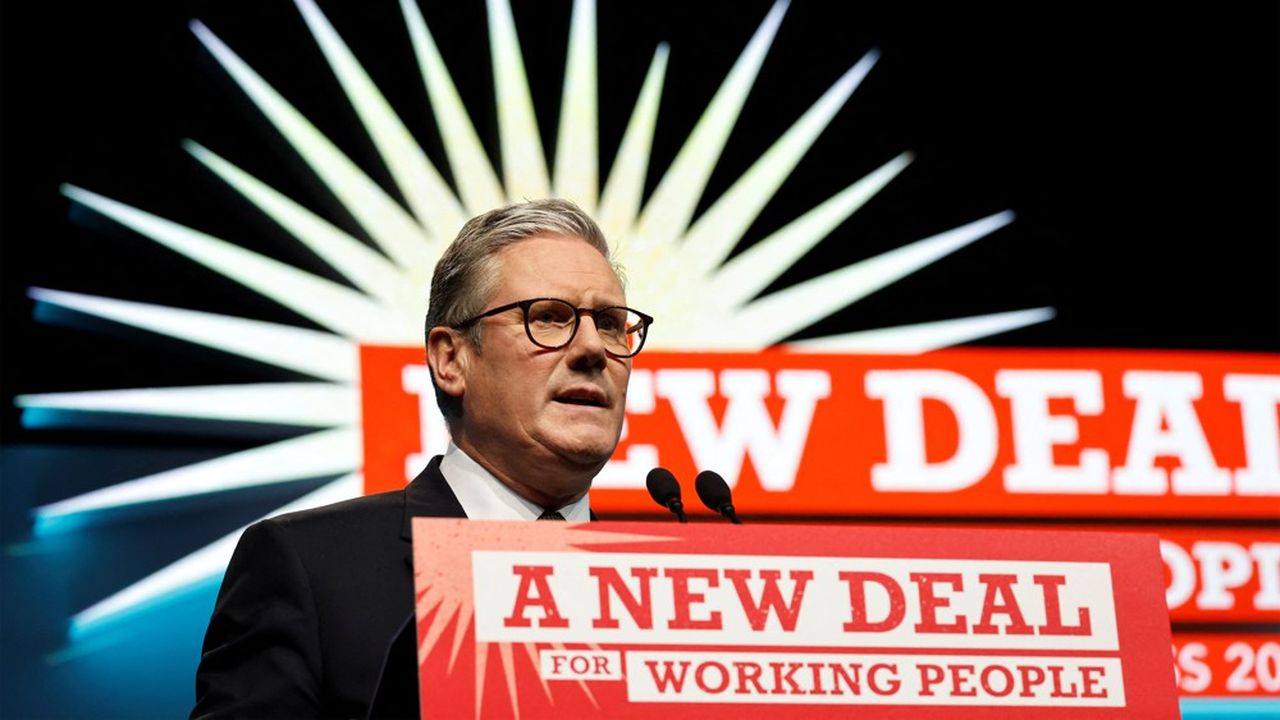
British Prime Minister Keir Starmer largely defeated a vote in Westminster on Tuesday against ending universal heating benefits for pensioners. But the anger over the measure, announced after his election in July, has proven to be one of the first real tests of his room for maneuver, including the support of the electoral base for the new Labour government.
This will not be the only test, as shown by the step-by-step negotiations on the reform of labor law, a major campaign project that Keir Starmer came to defend this Tuesday at the Trade Union Congress (TUC), the congress of British trade unions.
Heating aids
In the House of Commons, therefore, the attempt to block the end of universal heating benefits (£200 to £300 per year) for pensioners received only 228 votes, with 348 against. Around 50 Labour MPs abstained, even though they sometimes had other reasons for being absent from Westminster.
Only one Labour MP voted against. “If Chancellor Rachel Reeves wants to make more tough decisions, she will need to have a better strategy to sell them more widely,” said political scientist Jill Rutter of the Institute for Government. Her tough budget will be presented on October 30.
What was presented as an inevitable start to plug, to the tune of £1.5bn, a £22bn hole left by the previous government in the budget, has aroused more opposition than expected on the left, while the Starmer administration is only just beginning.
Manchester Mayor Andy Burnham had notably called for a more gradual approach. After years of austerity by the Conservative government, particularly in the early 2010s, the left is hoping for a different policy. A little under two million pensioners would be put in difficulty by this measure, according to associations.
Pensions to increase by 4%
Keir Starmer told his TUC audience that he “has no apologies for any of the decisions we have had to make to begin the work of change”. In July, Starmer suspended seven MPs who voted against his decision to maintain a Tory child benefit cap.
The prime minister’s defenders note that the poverty rate among pensioners has fallen sharply since the benefit was introduced under Tony Blair. The government is also counting on the state pension to rise from £350 to £460 a year under an indexation system that will this year be based on wage increases (4%), which are higher than price increases.
“New deal for workers”
At the TUC in Brighton, the reform of workers’ rights, presented as a “New Deal for Workers” and which is promised to Parliament in October, had already provoked opposition before the elections from the Unite union, whose boss considered that it had “more holes than Swiss cheese”. Today, as the final touches are put, the government is under pressure not to dilute or toughen it, according to the unions or employers.
Keir Starmer believed he detected on Tuesday “a change of mood” in the business world in favour of a partnership between companies and unions, “an opportunity to be seized”. Among the main points of the reform are the end of restrictions on the right to strike put in place in 2016, salary rights from the first day in the company, the end of “zero hours” contracts, i.e. without time commitment, but also a right to disconnect.
According to Bloomberg, one of the issues is whether some measures will be recommendations or enshrined in law. This is particularly the case for the right to disconnect.




